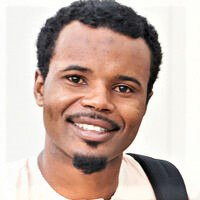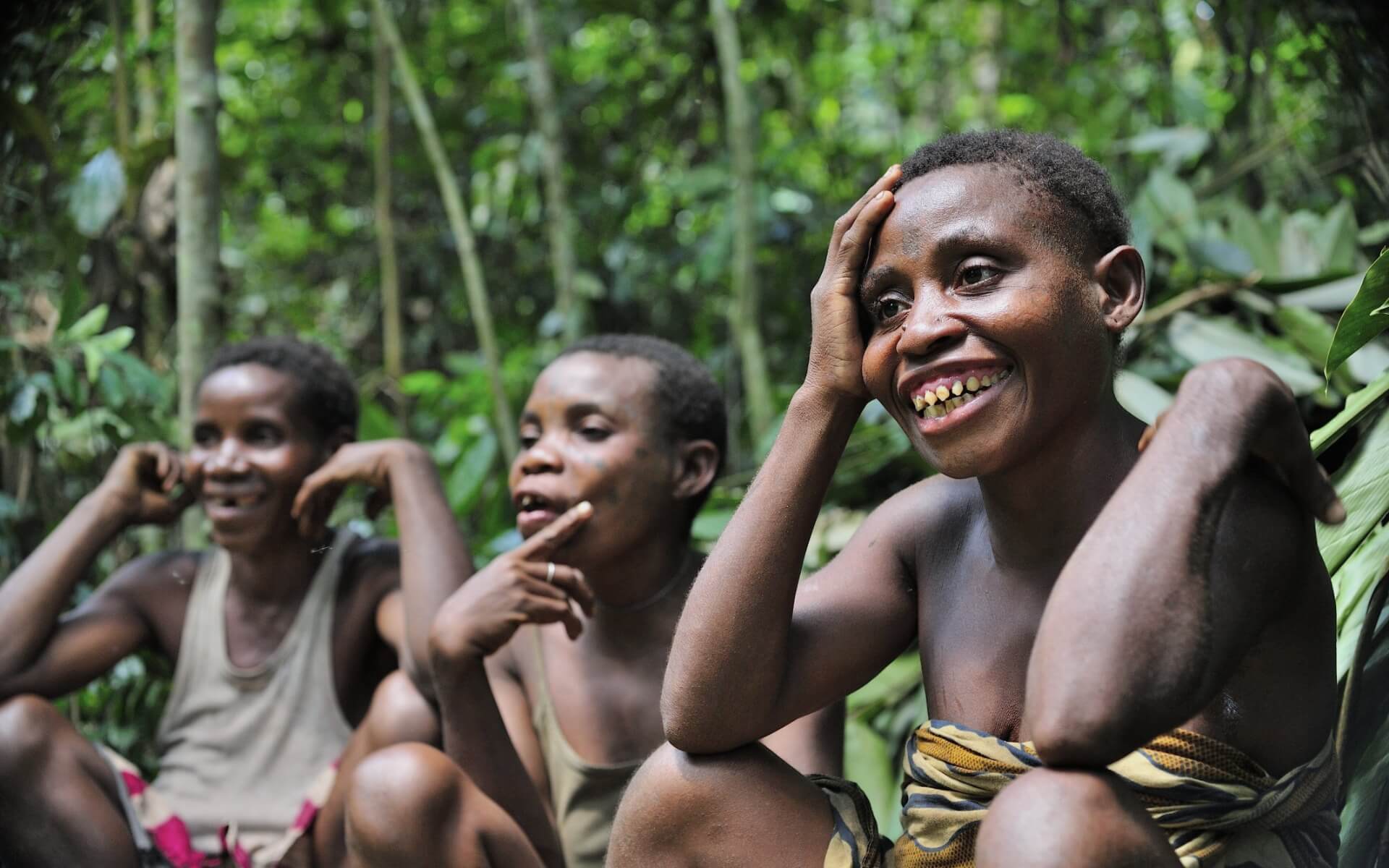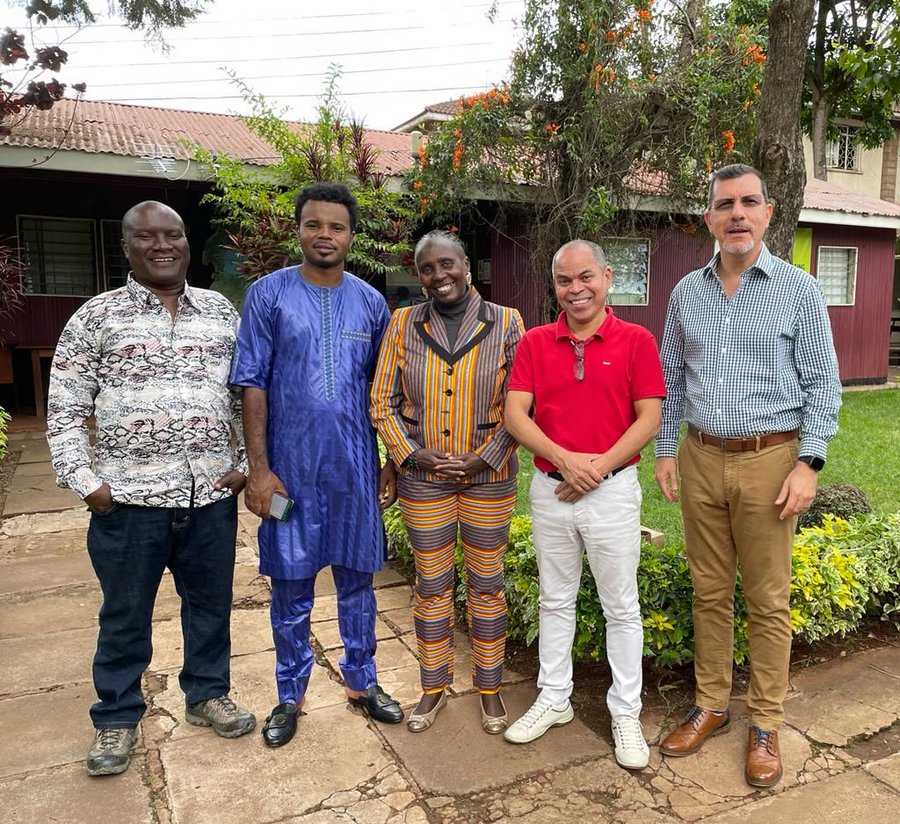Collaboration to promote Indigenous Peoples’ rights and self-development in Africa
A conversation with Basiru Isa of REPALEAC on the challenges of Indigenous Peoples’ recognition, rights, and natural resources.

In Africa, Indigenous Peoples are some of the most marginalized populations, face discrimination, and are excluded from decision-making on issues critical to them. They are facing threats to their rights, especially the right to land, and are impacted by climate change that manifests in droughts, floods, and locusts. They lack quality infrastructure and social services, such as education and health. All these challenges are further compounded by the fact there is confusion on the definition of Indigenous Peoples in the African context.
To work with Indigenous Peoples organizations on the promotion of Indigenous rights and self-development in Africa, the FSC Indigenous Foundation, through the Indigenous Peoples Alliance for Rights and Development (IPARD) Program, is creating a partnership with two major Indigenous Peoples platforms in the Africa Region: the Network of Indigenous and Local Communities for the Sustainable Management of Forest Ecosystems in Central Africa (REPALEAC) and the Indigenous Peoples Coordinating Committee of Africa (IPACC).
The FSC-IF had a conversation with the Secretary General of REPALEAC Basiru Isa to hear his perspective on Indigenous Peoples and Local Communities (IPLC) in Africa. Basiru has been involved with REPALEAC for more than ten years and is now in charge of the technical and programmatic section of the network. He is based in Cameroon.
FSC-IF: Could you tell us about REPALEAC and its strategic plan and vision?
Basiru Isa: REPALEAC is the network of Indigenous Peoples and Local Communities for the sustainable management of forest ecosystems. It was created in 2003 in Kigali, Rwanda and today is a regional network of more than 560 Indigenous Peoples organizations that are members. It operates in eight countries: Burundi, Cameroon, Chad, Central African Republic, the Democratic Republic of Congo, Gabon, the Republic of Congo, and Rwanda. So, REPALEAC has eight international networks that work on a daily basis for the interests of Indigenous Peoples in their countries.
REPALEAC developed a strategic plan in 2018 that runs from 2018 to 2025. It has three phases: the preparatory phase (2018 – 2020), the operationalization phase (2020 – 2021), and then now the implementation phase (2022 – 2025). This strategic plan has four strategic axes that are supported by operational objectives.
The first axis is securing land, territories, and natural resources. Under this axis are the recognition of Indigenous Peoples’ land rights and cartography of Indigenous Peoples’ land. The second priority axis is the participation of Indigenous Peoples in decision-making, especially in the management of their lands, forests, and natural resources at the local, national, and international levels. The third priority axis is consolidating economic benefits that are obtained from the sustainable management of natural resources. And the fourth priority axis is the sustainable strengthening of the living conditions of Indigenous Peoples. Finally, there is a transversal axis that deals with capacity building of Indigenous Peoples organizations, especially REPALEAC and its members.

FSC-IF: What are the challenges to implement this plan and the challenges facing Indigenous Peoples in Africa?
Basiru: The challenges are numerous but they are not beyond the international community. The first challenge is the recognition of Indigenous Peoples by states based on the UN Declaration on the Rights of Indigenous Peoples. Today, with the work of REPALEAC we are seeing advances in some countries, for example, the DRC is currently voting on a specific law for the rights of Indigenous Peoples. In Cameroon, there is already a national development plan for Indigenous Peoples. In the Republic of Congo, there is a specific direction at the Ministry of Justice which is dedicated to the rights of Indigenous Peoples. And recently in Burundi, there was the validation of the national development plan for Batwa communities.
The challenge is for countries to understand that Indigenous Peoples are people who have specificities because their culture and rights need to be understood and respected by states. The second challenge is facilitating social services for Indigenous Peoples that are adapted to their needs, for example, access to schools that are adapted to their agricultural, hunting, or pastoral calendars. How can they reconcile going to school with maintaining their traditional way of living? Another challenge is for Indigenous Peoples themselves to understand their specificities, how they can fight for their rights, and how can we empower them. A final challenge is how we can mobilize resources to achieve our vision.
FSC-IF: How can we overcome these challenges?
Basiru: We can continue lobbying and advocacy at the national level for the recognition of Indigenous Peoples. Second, to promote the recognition of their rights, especially the right to education, the right to land, the right to natural resources, and the right to participate in decision-making. If you look at the axes of REPALEAC, we are working in these areas. Third, to work with states and donors to see how we can mobilize resources to ensure that services provided to Indigenous Peoples are adapted to their cultural norms and also empower Indigenous communities. I think these are some of the efforts that we can try to make.

FSC-IF: How do you envision a collaboration with the FSC-IF in Africa?
Basiru: I think the FSC-IF is one of the most recent innovative tools that can be used to change the mindset of both the national and international communities, especially in what we call Indigenous National Development Plans. From REPALEAC, we envision a productive relationship. When we look at the three objectives of IPARD, they align with the five strategic axes of REPALEAC. So there is a common vision between REPALEAC and the FSC-IF and I think it is very easy for us to work together.
FSC-IF: How will this collaboration respond to the challenges facing Indigenous Peoples in Africa?
With the development of an Indigenous Peoples Development Program in Africa, a lot of effort will be put on advocacy at the local, national and regional levels for the recognition of Indigenous Peoples. Secondly, we can work on activities that can be directly implemented in Indigenous communities. Also, we can see how together we can mobilize resources and build capacities of Indigenous Peoples, organizations, and communities.
FSC-IF: What are the next steps?
Basiru: We have had a long-term discussion and a face-to-face meeting in Nairobi. Now the next step is to explore a Memorandum of Understanding and define our next steps together.
